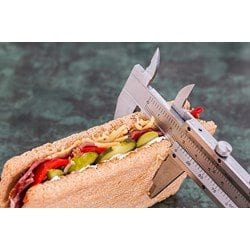What a Food Journal or Diary Will do for You
Food journals are generally thought of as a tool for people who want to lose weight. While it is true that a journal of this type can be an effective weight loss tool, it can also be employed in several other ways. Here are some of the reasons why you should consider keeping a food journal even if you are happy with your current weight.
Tracking Portion Sizes
There are usually two types of information that are recorded in a food consumption journal. One class of data is what you actually consume in terms of the type of food and the amount. The second class has to do with how you feel when you made your food selections; were you happy, sad, rushed, tired, or anxious?
How About Those Mood Swings?
Since our moods often impact the type of food we eat, a food journal can provide some insight into what range of emotions you’ve experienced on a given day. From this perspective, the journal can help you spot patterns that perhaps you never noticed before.
For example, are you always stressed out on Tuesdays? Perhaps it is due to the weekly staff meeting that takes place after lunch on that day. Are you euphoric on Friday afternoons, and exhibit that euphoria with a large pizza and a gut-busting soda that is almost gone by the time you get home?
By identifying these patterns, it is possible to take control of the situation – and your eating – and minimize the negative emotions that may be causing you distress. As a result, you are likely to find it easier to avoid the comfort food so often. You’ll also focus your attention on eating nutritious foods that provide the vitamins and minerals needed to help your mind and body deal with stressful situations.
How Much Money do You Spend on Food?
A food journal can also help uncover some interesting trends as far as your spending habits. By keeping tabs on everything you consume, you may find that you are spending way too much money each week on snacks from a vending machine. Knowing what you spend each week on quick snacks and other convenience foods could lead to dietary changes that put a sizable amount of money in your pocket by the end of the month.
Diet and Your Health Issues
The journal can track your progress as you seek to include more fresh fruit and vegetables in your diet. At the same time, the recorded data can also help you minimize or eliminate foods you do not need to eat, for various health reasons.
A dietary journal can help someone learning to live with Type II diabetes or high levels of bad cholesterol make smarter choices that will be good for his or her body in the long run.
Even if you are at an ideal weight and have no specific health issues that call for following a special diet, don’t write off the value of keeping a food journal. From saving money to improving your general health, that simple approach will prove to be invaluable.




